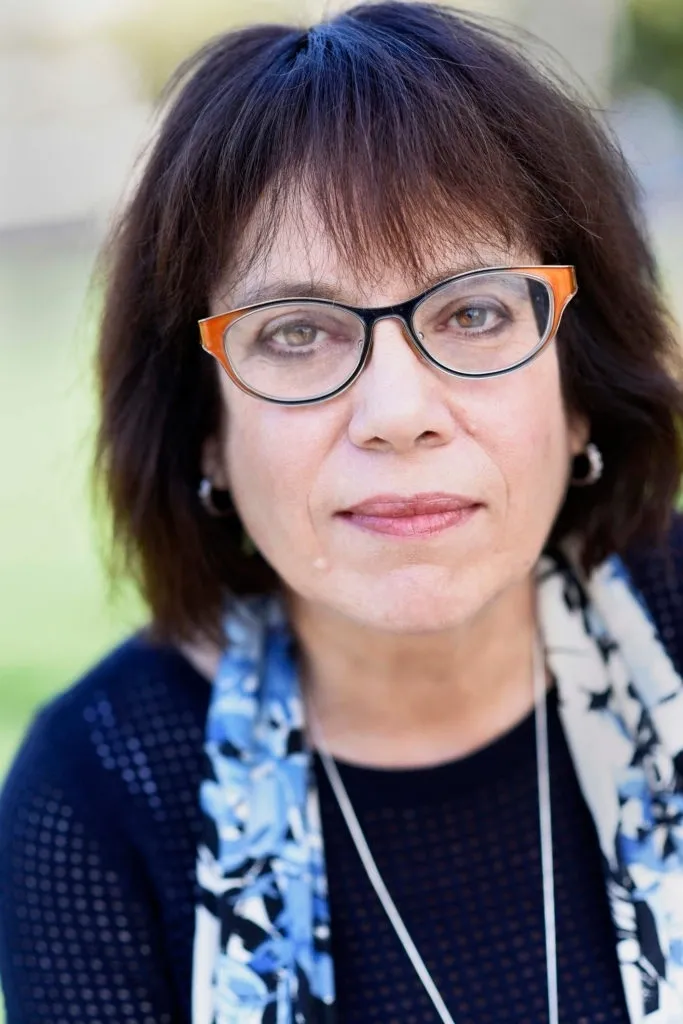Deborah Blum: Award-Winning Science Writer
About the Author:
Deborah Blum is a Pulitzer-prize winning science journalist, the best-selling author of six books, and a writer with a long-standing interest in poison, in our everyday lives, in our history and in far too many murders.
She blames her parents in part for that slightly twisted approach to science writing. Her mother was a dedicated reader of murder mysteries and owned copies (66) of every Agatha Christie detective novel published. Her father was an entomologist who specialized in venoms and once kept a live black widow (in a plexiglass box) as a dining room table centerpiece. He also gave her a tarantula as a house-warming present for her first college apartment.
He also taught her to love chemistry. In fact, she began college as a science major intent on becoming a chemist. Her time in the laboratory taught her real respect for the necessary precision of science and an important corollary - also that a lab is no place for an easily distracted student. She decided to change majors the day she set her braid on fire in a Bunsen burner: “Do you smell smoke?” asked her lab instructor. She realized that she – and everyone around her – would be safer if she wrote about chemistry rather than practiced it.
In 2010, she published The Poisoner’s Handbook, a non-fiction book about two early 20th century New York City scientists learning how to catch killers. The book became a New York Times paperback best seller and the subject of a PBS documentary, which was short-listed for an Emmy Award. Her next book, The Poison Squad, the story of a federal chemist fighting to get poisons out of the American food supply in the 19th century, was published in 2018. It was named a New York Times Notable Book and also became a PBS documentary. She is currently under contract with Penguin Press for a book about female poisoners.
As a freelance science journalist, Blum wrote a poisonous chemistry blog, Elemental, for Wired magazine; Time magazine named it one of the 25 best American blogs in 2013, and a toxicology column, Poison Pen, for The New York Times. She has written about toxicology – from both an environmental and homicidal standpoint – for publications including The Wall Street Journal, Time, Discover, Scientific American, The Guardian, Lapham’s Quarterly, and Undark magazine.
She is also publisher of Undark, a magazine she helped found in 2016, after she became director of the Knight Science Journalism Program at the Massachusetts Institute of Technology. Her position at MIT speaks to the fact that while her favorite science is chemistry she has a real interest in investigating all things science, in the importance of science journalism and in sharing stories of science with as wide an audience as possible. She was co-editor of two editions of A Field Guide for Science Writers and of the 2022 book A Tactical Guide to Science Journalism. She was also the guest editor of the 2014 edition of Best American Science and Nature Writing.
She earned an undergraduate degree in journalism from the University of Georgia in 1972 and her masters in science journalism from the University of Wisconsin-Madison in 1982. After receiving her masters degree, Blum went to work as a science writer for McClatchy Newspapers in California, starting with The Fresno Bee and moving to The Sacramento Bee in 1984. In 1992, while in Sacramento, she won a Pulitzer Prize in beat reporting for writing about the deep, troubling underlying ethical issues surrounding primate research.
The series became the starting point for a book, also called The Monkey Wars, published by Oxford University Press in 1994. By then, she’d learned to value the way a book allows a writer to delve deeper into complicated questions. She started work on a second book, an exploration of gender differences, called Sex on the Brain, published by Viking in 1997. That year, she returned to the University of Wisconsin as a professor of practice in the School of Journalism and Mass Communication, where she continued her work as a freelance journalist and book author. Additional books included Love at Goon Park: Harry Harlow and the Science of Affection, was published by Perseus Books in 2002 and was a finalist for the Los Angeles Times Book Prize and Ghost Hunters: William James and the Search for Scientific Proof of Life After Death, published in 2006, which looked at a band of brilliant 19th century scientists who were willing to risk their careers to investigate the idea that the dead can communicate with the living (and vice versa).
It was after those books, that she began returning to a focus on chemistry and toxicology, beginning with the publication of The Poisoner’s Handbook which was named one of the top 100 books of the year by Amazon.
Blum moved to the Massachusetts Institute of Technology in 2015, after being named director of the Knight Science Journalism program at the Massachusetts Institute of Technology, where she launched the award-winning science magazine, Undark. The name of the magazine comes from the 1920s brand name for radium-based luminous paint and she has described the publication as one that will seek to illuminate science and its complex, human story in both light and shadow.
And that same sense of purpose underlines all her investigations of poison, from environmental exposures to homicidal events. The book under contract, an investigation of female poisoners, seeks to not only tell murder stories but learn from them, exploring this darker edge of human behavior and what it – and how we handle it – tells us about the world around us.
For A More Traditional Bio:
Deborah Blum, director of the Knight Science Journalism program at MIT, is a Pulitzer-Prize winning science journalist, columnist, and author of six books, most recently, The Poison Squad, a 2018 New York Times Notable Book, and the subject of a 2020 PBS documentary. She is co-editor of the 2022 book, A Tactical Guide to Science Journalism, published by Oxford University Press and is currently under contract with Penguin Press for a book about female poisoners.
Blum won the Pulitzer in 1992 for a series on primate research that became her first book, The Monkey Wars. She has since focused on key moments in the history of science with books including Love at Goon Park (2002), Ghost Hunters (2006), and a New York Times bestseller, The Poisoner’s Handbook (2010). She has worked as a science columnist for The New York Times, a blogger for Wired, and has written for publications ranging from The Wall Street Journal to Mother Jones. She was the Helen Firstbrook Franklin professor of journalism at the University of Wisconsin-Madison for 15 years before being selected as the fourth director of the Knight Science Journalism Program in 2015. Shortly later, she launched the online science magazine, Undark, which now numbers a readership in the millions and has won numerous national awards, including the George K. Polk Award.
Blum is a former president of the National Association of Science Writers, was a member of the governing board of the World Federation of Science Writers, and currently serves on the board of the Council for the Advancement of Science Writing. She is a fellow of the American Association for the Advancement of Science (AAAS) and a lifetime associate of the National Academy of Sciences (NAS) in recognition of her work in science communication.

